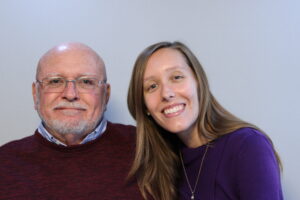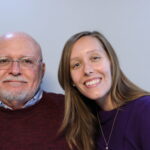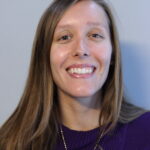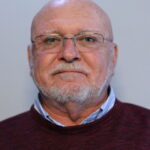Description
Jaime Staengel (29) interviews her friend Michael Hutchinson (75) about his work as a registered nurse.Subject Log / Time Code
Jaime Staengel (JS) asks Michael Hutchinson (MH) about his journey becoming a registered nurse.
MH reflects on how some people are born to be caregivers.
MH remembers finishing his carpentry job and starting work as a nurse.
MH tells the story of taking care of a patient and playing viola for him.
MH compares nursing to improvisation acting.
MH talks about working with a spine surgeon who is dedicated to his patients.
MH talks about the importance of bringing empathy to this job.
Participants
- Jaime Staengel
- Michael Hutchinson



